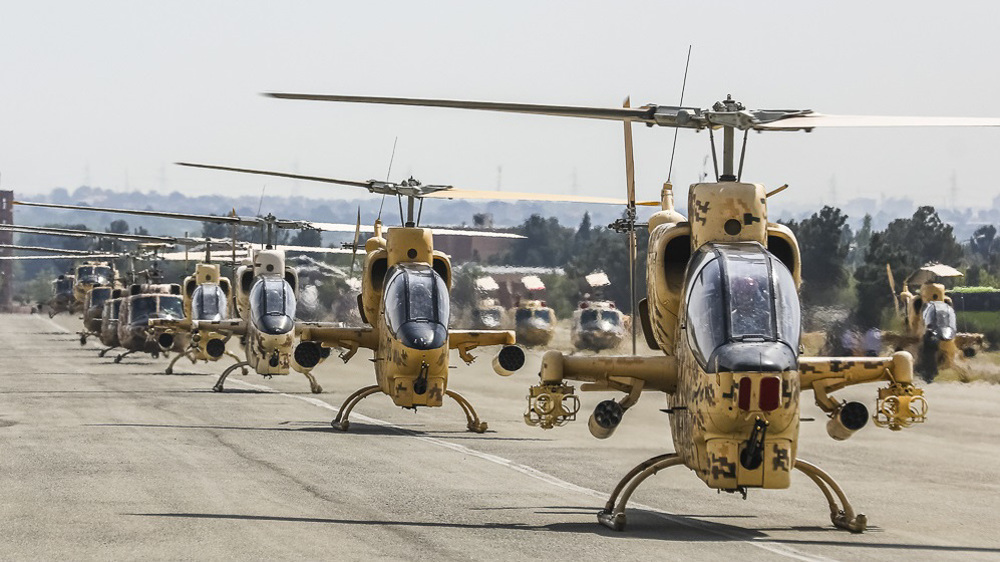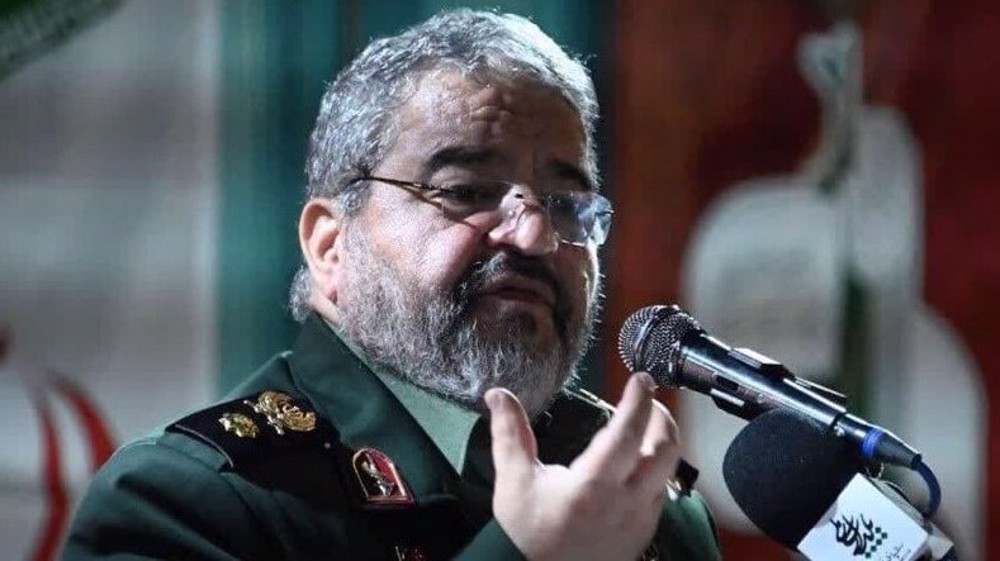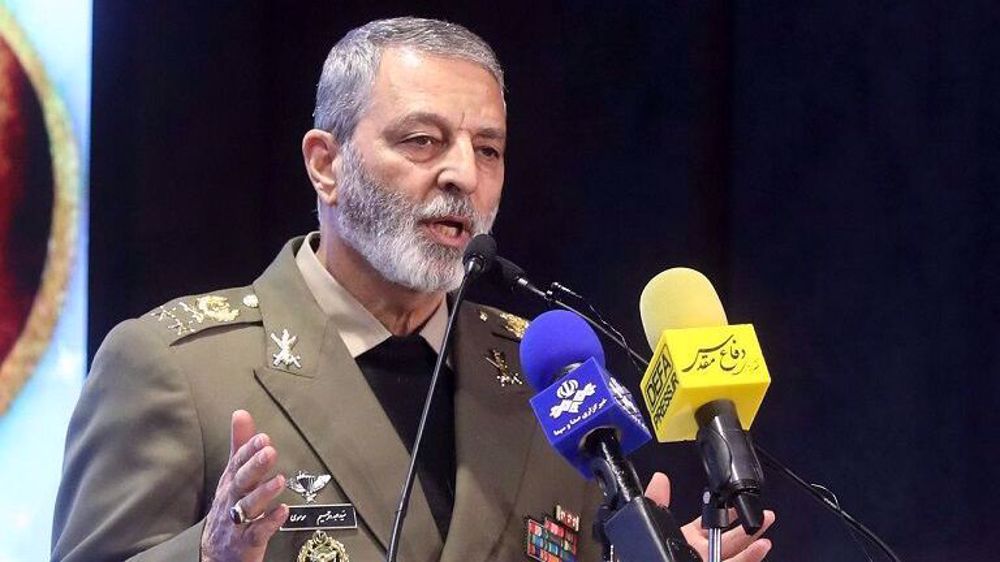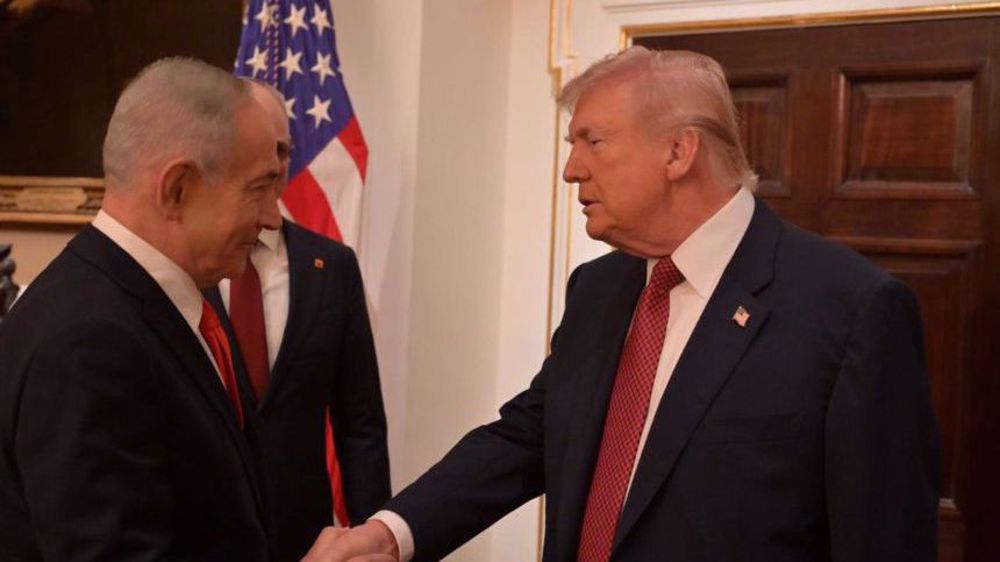Iran Army Aviation ‘strongest’ helicopter fleet in West Asia: Commander
The commander of the Iranian Army Aviation says the unit operates as the most powerful helicopter fleet in West Asia and enjoys state-of-the-art weapons and equipment.
Brigadier General Yousef Ghorbani made the comment at a ceremony on Sunday in commemoration of Iran’s 1988 military counterattack, code-named Operation Mersad, which crippled the forces of the Mujahedin-e-Khalq (MKO) terrorist organization and left over 4,800 casualties.
Ghorbani said the Iranian Army Aviation is currently providing air border support to all units and has a strong presence at border areas.
“Today, the Iranian Army Aviation is in a very desirable state in terms of combat readiness, and this is an achievement which has been gained despite severe sanctions in the aviation field,” he said.
The commander pointed to the Army Aviation’s self-sufficiency, component-manufacturing campaign, and installation of indigenous night vision cameras as some of the achievements of the unit.
“Today, the Iranian Army Aviation functions as the largest and strongest helicopter fleet in West Asia,” Ghorbani said, adding that the unit’s helicopters are equipped with world-class night vision systems and precision strike missiles, which is providing the Islamic Republic with a deterrent power.
Iranian military experts and engineers have in recent years made remarkable breakthroughs in manufacturing a broad range of indigenous equipment, making the armed forces self-sufficient.
Iranian officials have made clear that the country will not hesitate to strengthen its military capabilities, including its missile power, which are entirely meant for defense, and that Iran’s defense capabilities will be never open for negotiations.
Iran says entered talks with US with 'result-oriented approach'
Iran FM, IAEA chief meet ahead of indirect talks with US
Israeli soldier admits to murder, rape in Gaza during live stream
VIDEO | Pakistan protesters condemn US-Israel threats, mourn mosque victims
VIDEO | Press TV's news headlines
Tehran slams US ‘inhumane’ sanctions against Cuba
Two Palestinian children killed in PA ambush; Hamas slams attack as ‘black mark’
Iran pursues talks and deterrence simultaneously: Security chief










 This makes it easy to access the Press TV website
This makes it easy to access the Press TV website